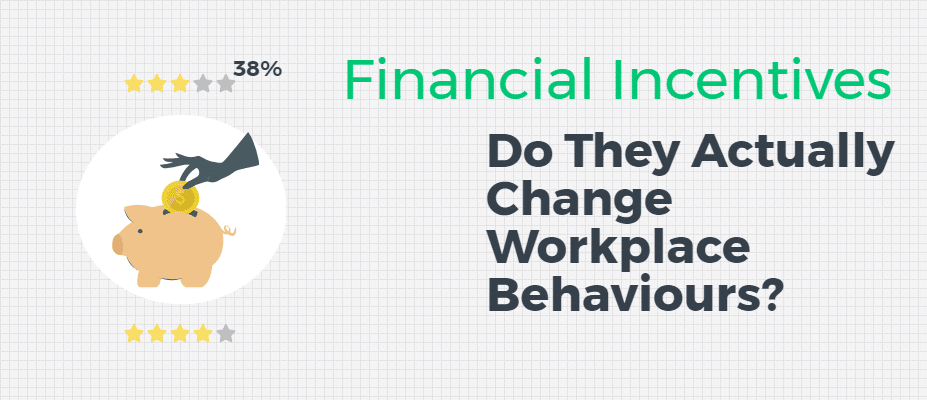
Do Financial Incentives Actually Change Workplace Behaviours?
When a business wants to change practices, offering financial incentives to employees seems the obvious choice to cultivate long-lasting changes. However, new research published in the Harvard Business Review suggests otherwise. It found that financial enticements are not the best method of creating persistent change in the workplace.
Assistant Professor at Harvard Business School Susanna Gallani conducted the research. She wondered if, and how, organisational behaviour changed incited by temporary incentive programs persisted past the incentive period. She found that while workers do positively respond to the financial inducements, the change in behaviour only persists briefly. Then, employees revert to old habits.
The research also found that offering monetary bonuses may be counter-intuitive to the desired behaviours. This is because it can push some employees to place a value on a practice they may have done voluntary. In turn, the the process becomes transactional rather than ‘for the good of the organisation’.
It may also create the ‘crowding-out effect’ of explicit incentive. That is, the motivation to complete a task for money may ‘crowd out’ other implicit motivations to do so. These other reasons include as safety, customer benefit, business efficiency, or improvements for other stakeholders.
Measuring the impact of financial incentives
The study was conducted in a Californian hospital. A one-time $1200 bonus was offered to employees to improve hand hygiene. Data was collected on how often hospital workers sanitised their hands before and after contact with a patient.
Due to Californian law, doctors are not allowed to be hospital employees. However, they are included in the hand hygiene statistics collected. This meant their performance would affect whether the bonus was paid, but they would not receive the bonus.
The hospital employees, who would benefit, created simple but effective methods to exert ‘peer pressure’ on the doctors to reach the goal. These included hand-written notes of congratulations for those observed doing well, and firm but polite reminders of hand hygiene standards to those who were not.
During the research, employees eligible for the bonus quickly improved their performance. The doctors experienced a slower improvement. However, after the study, employees reverted to old behaviour much quicker. The doctors maintained a significantly improved level of performance in the observation after the study.
It is believed the peer pressure of the group most motivated to achieve the goal – employees eligible for the bonus – contributed to the motivation of the doctors to perform a task for which they would receive no material benefit.
Should financial incentives be ruled out?
Short answer – no. This research suggests that financial incentives may have triggered the peer pressure that pushed the doctors to contribute to the set targets. Associate Professor Gallani said the peer pressure found in workplace teams, along with horizontal monitoring (that is, monitoring the performance of your workplace peers), are effective implicit incentives to affect long-term change.
Further, the study looked at the hospital workers as a group, not at an individual level. It was found that workers who had the highest levels of improvement during the three-month trial were the most likely to maintain the changed habits into the future. This implies that managers who monitor initial reactions to a financial incentive may be able to provided targeted, additional incentives to those most at risk of not complying.
The study also notes that the simple, repetitive nature of the task measured may see more regression than monetary incentives attached to more complex tasks, where a significant process of learning must occur in the process.
Temporary initiatives and one-off bonuses are common in many industries where KPIs are religiously monitored. It is important for managers to be open to the fact that data from incentive schemes are not necessarily indicative of achievable results over time.
Managers should plan incentive schemes carefully, and take advantage of horizontal monitoring. Sometimes a group goal can be better than individual financial benefit.